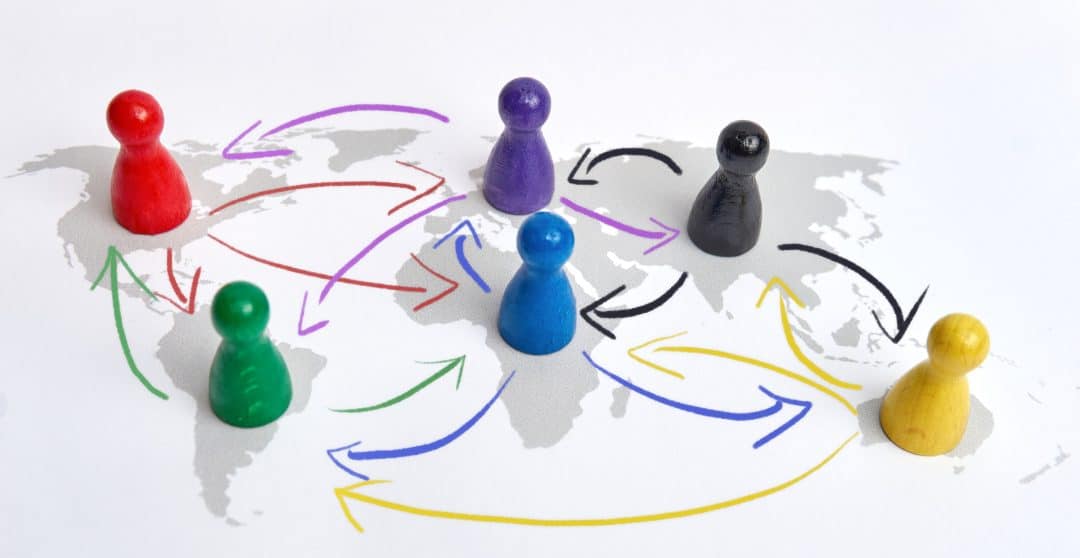TAP Community of Practice Promotes Intercultural Knowledge Exchange
In an increasingly interconnected world, intercultural dialogue is pivotal in fostering sustainable development, providing a platform for diverse societies to collaboratively tackle global challenges. Through the exchange of knowledge, ideas, and innovations, this dialogue promotes social cohesion, inclusion, and equitable development. Recognizing the significance of intercultural dialogue, the world comes together on May 21st, every year, to celebrate the World Day for Cultural Diversity for Dialogue and Development. This observance, sanctioned by the United Nations since 2002, highlights the value of cultural diversity in achieving peace and sustainable development.
At TAP-EDM, we joined in this celebration, acknowledging the transformative power of intercultural dialogue in our deployments. To facilitate this dialogue, TAP-EDM has established the TAP Community of Practice, a dynamic online platform where Canadian experts and the TAP team can share their intercultural learning, experiences, and best practices.
As we inaugurated our first TAP Community of Practice online session, we were honoured to have Sarah Powers, Learning Advisor, Global Affairs Canada Centre for Intercultural Learning (CIL) deliver the opening remarks. The TAP Canadian experts undergo the CIL intercultural effectiveness training before embarking on their projects, and this session provided a unique opportunity to review key learnings related to intercultural competencies. The Centre for Learning in Intercultural Effectiveness and International Assistance Policy is dedicated to developing these competencies to facilitate successful and sustainable international relations while fostering inclusive teams and organizations.
Navigating Intercultural Challenges: Insights from Canadian experts in The Gambia and Suriname
During the session, we had the privilege of hearing firsthand from our experts about how they navigate intercultural challenges during their deployments to gain insights from their experiences. Anju Fujioka, who is currently working in The Gambia on addressing sexual and gender-based violence (SGBV), and Samantha Page, from the Climate Risk Institute, who is involved in climate resilient infrastructure training in Suriname, shared their intercultural encounters, the challenges they faced working in new countries, and how they adapted.
Anju enlightened us on her strategies for gathering information about a new country and gaining an understanding of its cultural norms and attitudes before departure. These preparations proved crucial for her meetings with partners in The Gambia, especially considering the sensitive subject of sexual and gender-based violence (SGBV). She emphasized the importance of acknowledging our potential for incorrect assumptions about religious, social, or cultural customs – even if they are based on lived experience or research. Throughout her deployment and interactions with partners, Anju remained open-minded, flexible, and responsive to the reactions and discussions within the group. She recommends seeking immediate feedback from participants and applying that feedback in subsequent interactions to improve intercultural communication and collaboration. She also highlighted the power of storytelling as a means of communication and knowledge sharing. An important lesson she shared was the value of letting people fully tell their stories, even if they seem slightly off-topic. This approach fosters trust, goodwill, and inclusive dialogue.
Samantha recounted her recent experiences in Suriname, facing language barriers and preconceptions about facilitation styles and delivering technical activities. To overcome these challenges, her team prepared for the unexpected, adapting their presentations on the fly, simplified technical language, and encouraged participants to engage in dialogue using their native language enabling deeper sharing among themselves. Building solid relationships emerged as a critical success factor, meeting people where they are in their busy schedules and establishing meaningful connections through cultural activities and, of course, the universal language of food.
Valuable Exchange of Best Practices
Both experts shared how they experienced perceptions around their credibility due to their age and gender. They highlighted how gender dynamics could influence perceptions in certain countries, where introducing young women as experts may not align with local norms. Anju and Samantha stressed the importance of awareness of our biases, understanding that diversity of norms and attitudes is expected, and embracing humility to navigate such challenges.
In addition to Anju and Samantha, our other Canadian experts participating in the session also contributed to the discussion through reflection and meaningful exchanges. Many agreed on the significance of establishing personal connections, which can create positive interactions. Even experts who have yet to be deployed found the discussion valuable and supportive.
The TAP team looks forward to reconnecting experts through the Community of Practice for future knowledge-sharing opportunities centered on their technical assistance projects.

